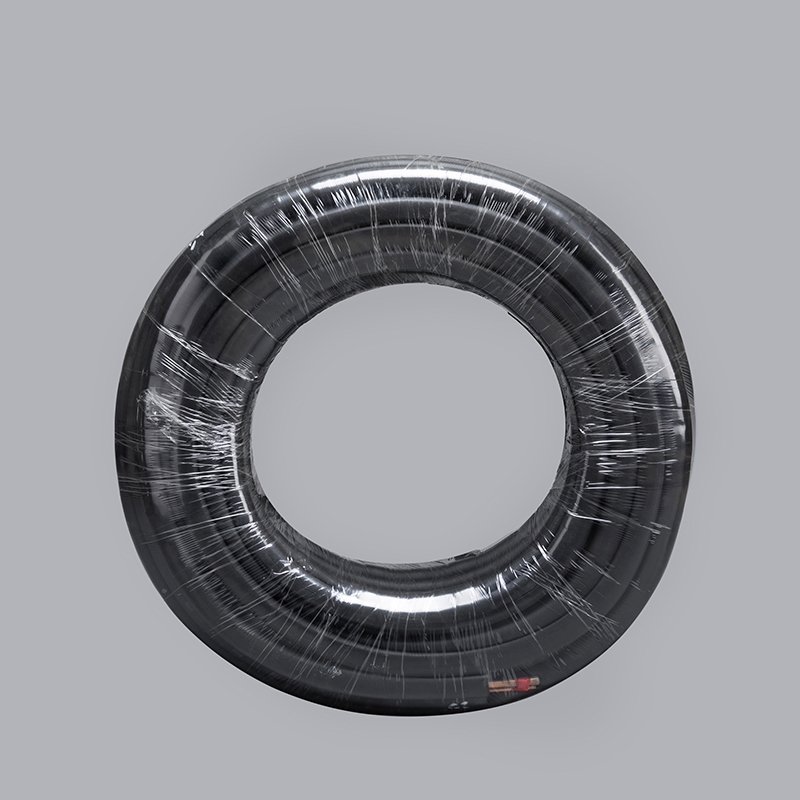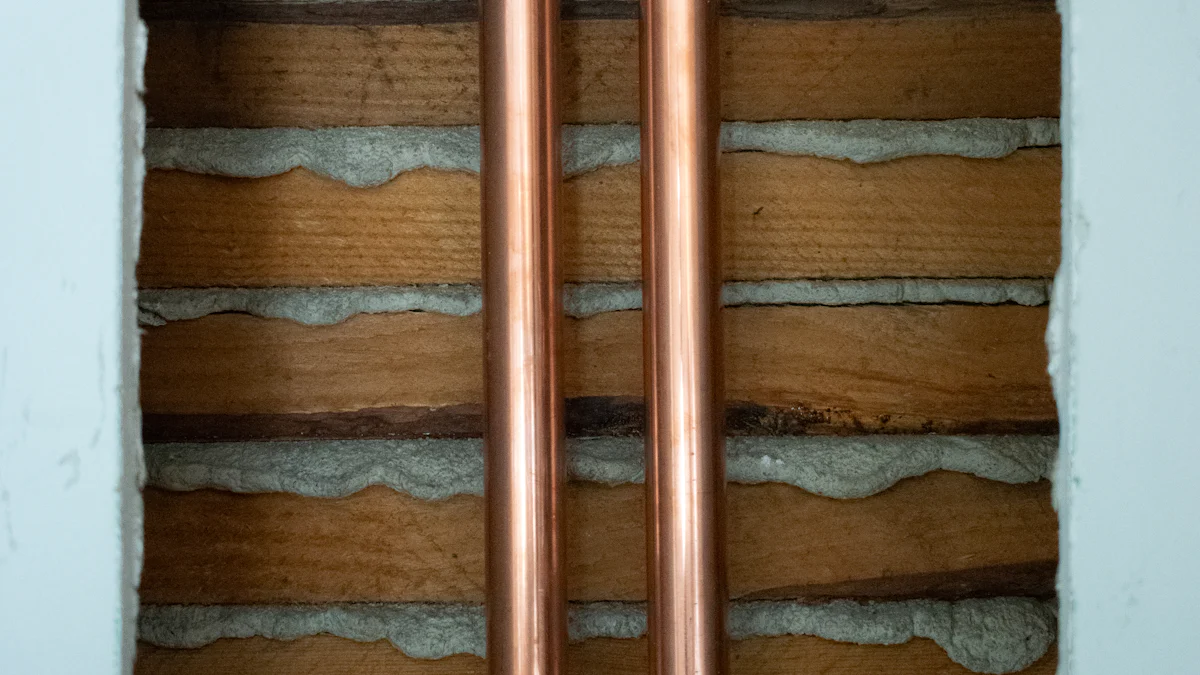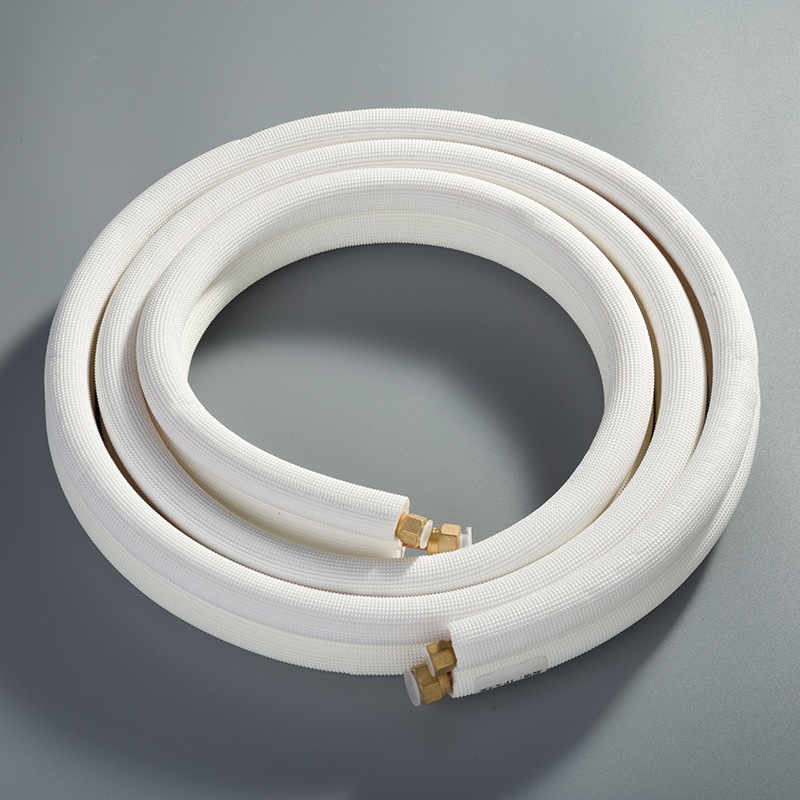Why Insulating Copper Pipes in AC Systems is Crucial

Efficient AC systems are essential for maintaining a comfortable indoor environment. Write a 'Why' blog post on 'Why insulating air conditioner copper pipes is important' to highlight the crucial role that insulating air conditioner copper pipes plays in ensuring the optimal performance of these systems. Copper pipes are the backbone of AC units, facilitating the transfer of refrigerant to cool your space effectively. By understanding the significance of insulation, homeowners and technicians can unlock a myriad of benefits that enhance energy efficiency and prevent potential issues like corrosion and mold.
Understanding Copper Pipes in AC Systems
Role of Copper Pipes
Heat Transfer Efficiency
Insulated copper pipes significantly reduce heat loss compared to uninsulated ones.
The insulation thickness and conductivity coefficient play a crucial role in minimizing heat transfer.
When copper pipes are properly insulated, the temperature difference between the pipe and the surrounding air is efficiently maintained.
Durability and Longevity
Insulating copper pipes not only enhances their thermal efficiency but also extends their lifespan.
The insulation acts as a protective barrier, shielding the pipes from external factors that could compromise their durability.
By preventing heat loss and maintaining optimal operating temperatures, insulated copper pipes ensure long-term reliability.
Benefits of Insulating Copper Pipes

Energy Efficiency
Insulating air conditioner copper pipes contributes to energy efficiency in various ways:
Reduced Energy Consumption
Proper insulation reduces the amount of heat absorbed by the pipes, leading to lower energy consumption.
By minimizing heat transfer, insulated pipes help the system operate more efficiently, consuming less power.
Lower Utility Bills
Insulating air conditioner copper pipes results in reduced energy usage, translating to cost savings on utility bills.
Homeowners can enjoy lower monthly expenses by ensuring that their AC systems are optimized with well-insulated copper pipes.
Preventing Condensation
Insulation plays a crucial role in preventing condensation and its associated risks:
Avoiding Water Damage
Insulating air conditioner copper pipes prevents condensation buildup, reducing the risk of water damage to the surrounding areas.
By maintaining optimal temperatures on the pipe surface, insulation safeguards against potential leaks and water-related issues.
Maintaining System Efficiency
The absence of condensation due to proper insulation ensures that the AC system operates at peak efficiency.
Insulated copper pipes maintain consistent temperatures, promoting system longevity and preventing efficiency losses.
Extending System Lifespan
Properly insulated air conditioner copper pipes offer long-term benefits for the overall system:
Reducing Wear and Tear
Insulation protects copper pipes from external factors that could cause wear and tear over time.
By reducing thermal stress on the components, insulation helps prolong the lifespan of the entire AC system.
Minimizing Maintenance Costs
Well-insulated copper pipes require less maintenance and repair work due to their enhanced durability.
Homeowners can save on maintenance costs by investing in quality insulation for their AC piping.
Types of Insulation Materials

Foam Insulation
Advantages
Closed-cell foam insulation, like AP ArmaFlex®, acts as a built-in vapor retarder, preventing moisture intrusion.
Superior protection against condensation and heat transfer due to its closed-cell structure.
Long-lasting durability and resistance to moisture, ensuring optimal thermal efficiency.
Disadvantages
Limited flexibility in installation compared to other insulation materials.
Higher initial cost investment but offers significant long-term benefits.
Requires precise measurements and cutting for a proper fit on copper pipes.
Rubber Insulation
Advantages
Closed-cell rubber foam products provide superior protection with very low permeability values.
Resistant to condensation, ensuring long-lasting insulation performance.
Ideal for AC refrigerant lines due to its built-in vapor retarder feature.
Disadvantages
May require specialized tools for installation due to the material's density.
Initial cost may be higher than other insulation types but pays off in efficiency gains.
Regular maintenance checks are necessary to ensure continued effectiveness.
Fiberglass Insulation
Advantages
Cost-effective solution for insulating copper pipes in AC systems.
Easy to install and widely available in various sizes and thicknesses.
Provides adequate thermal protection when properly installed on the pipes.
Disadvantages
Susceptible to moisture absorption if not sealed correctly during installation.
Prone to compression over time, potentially reducing its insulating properties.
Requires additional protective measures in humid environments to prevent mold growth.
Installation Process
Preparation
To start the installation process, Measuring Pipes accurately is essential for selecting the right insulation material.
Selecting Insulation Material wisely is crucial for ensuring optimal performance and longevity of the copper pipes in AC systems.
Application
When it comes to Cutting Insulation to Size, precision is key to achieving a snug fit that maximizes thermal efficiency.
Securing Insulation effectively ensures that the insulation remains intact and provides continuous protection against external factors.
Post-Installation Checks
After completing the installation, Inspecting for Gaps along the insulated pipes helps identify any areas that may require additional attention.
Ensuring Proper Sealing of all joints and connections guarantees that the insulation functions as intended, maintaining efficiency and preventing heat loss.
Highlighting the significance of insulating air conditioner copper pipes is paramount for maintaining efficient AC systems. By preventing condensation and reducing energy consumption, insulation ensures optimal performance. The benefits extend to lower utility bills, system longevity, and minimized maintenance costs. Embracing proper insulation materials like foam, rubber, or fiberglass enhances thermal efficiency and protects against wear and tear. In conclusion, prioritizing the insulation of copper pipes not only saves energy but also safeguards your AC system's durability and functionality.
See Also
The Importance of Copper Piping for Effective Air Cooling
Benefits of Opting for Copper Tubing in AC Units
How Copper Piping is Transforming Air Cooling Systems


